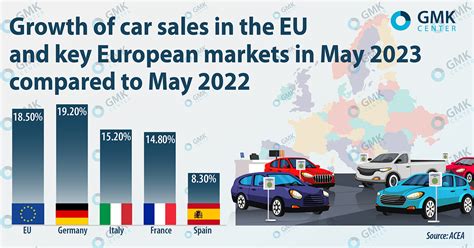The European car manufacturing sector is bracing for a tumultuous year ahead, navigating through a maze of evolving regulations and economic challenges. As the world shifts towards a greener future, carmakers in Europe find themselves at a pivotal juncture, balancing profitability with compliance.
Challenges on the Horizon
The Society of Motor Manufacturers and Traders warns of an impending storm as changing emissions laws and soaring costs threaten to chip away at the profit margins of car companies across the continent. The automotive landscape is rapidly transforming, necessitating swift adaptation from industry players to stay afloat in this sea of uncertainty.
The Electric Revolution
While electric vehicle (EV) sales are projected to surge in 2025, offering a glimmer of hope for the industry, concerns loom large over profitability. The transition towards EVs comes with its own set of hurdles, including heavy discounting and escalating regulatory expenses that could potentially offset any gains from increased sales volume.
Mike Hawes, the chief executive of SMMT, candidly acknowledges the financial conundrum faced by manufacturers: “The amount of money available to stimulate demand is going to be under severe pressure when manufacturers have very finite resources.” This stark reality underscores the delicate balance between promoting sustainable practices and sustaining business viability.
Regulatory Roadblocks
As governments tighten their grip on emissions standards, car manufacturers are compelled to realign their strategies to meet stringent targets. With the EU setting ambitious goals for EV market penetration by 2030 and beyond, industry giants must navigate through uncharted territory while avoiding hefty fines for non-compliance.
The looming target of reducing carbon dioxide emissions per kilometer adds another layer of complexity to an already intricate regulatory framework. Failure to adhere to these mandates could spell financial trouble for manufacturers, further exacerbating their operational challenges in an increasingly competitive market environment.
Global Trade Turmoil
Amid escalating trade tensions between major economies like China and the EU, carmakers face potential disruptions in key markets crucial for their growth. Higher tariffs on Chinese EV imports and retaliatory measures threaten to upend established supply chains, impacting renowned brands such as BMW, Mercedes-Benz, and Audi.
The specter of inflation coupled with fluctuating interest rates casts a shadow over profit margins within the industry. Limited resources available for research and development pose a significant hurdle in accelerating innovation efforts towards electrification—a cornerstone for sustainable growth in today’s automotive landscape.
Future Outlook
As stalwarts like Stellantis and Volkswagen grapple with internal strife ranging from labor disputes to workforce reductions, uncertainties abound regarding their ability to weather the storm brewing on multiple fronts. The coming year promises both challenges and opportunities for European car manufacturers as they navigate through uncharted waters towards a more sustainable future.
In conclusion, while the road ahead may be fraught with obstacles, it is imperative for stakeholders within the European car industry to embrace change proactively. By fostering innovation, adapting swiftly to regulatory shifts, and fortifying global partnerships amidst trade uncertainties—car companies can steer towards resilience amid turbulent times ahead.




Leave feedback about this